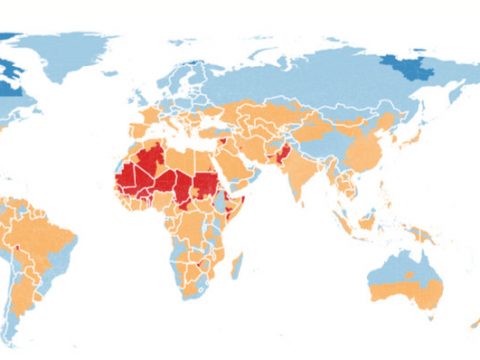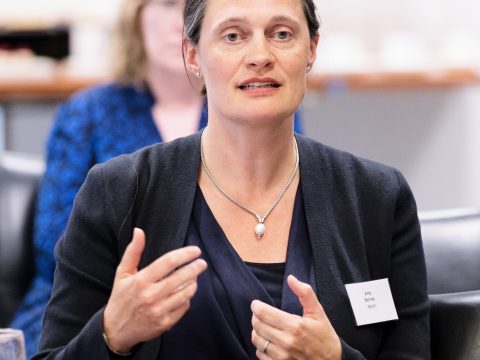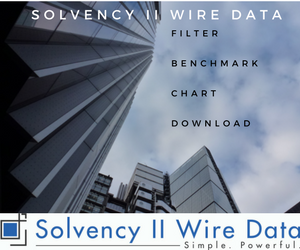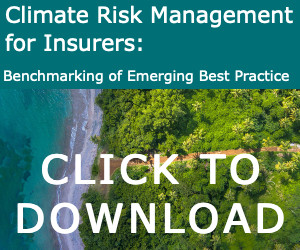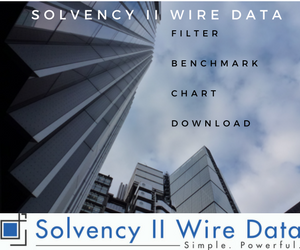
The temptation to provide ever more ESG information must be tempered with consideration of its usefulness for effective decision making. Mark Babington, executive director, regulatory standards, Financial Reporting Council makes the case for creating global ESG reporting standards, highlighting some successes and challenges in recent years.
Levelling up ESG and financial reporting
High-quality, consistent and comparable information is vital for investors and other stakeholders for effective decision making. Increasingly, investors are using ESG information to drive capital allocation decisions. As a result, it is vital that such information is as reliable and trustworthy as the financial information that has traditionally been used for this purpose. We also know that on the back of the pandemic, stakeholders place increasing importance that the companies they engage with, buy from, and work for, should ‘do the right thing’.
Increasing volume and size of reporting

Annual reports are no longer short documents. As demand for information grows and governments legislate to require information on ESG related matters, companies face a growing challenge if they are to provide their stakeholders with a decision-useful, accessible package of information; rather than a document that gets ever longer, meets all the legal and regulatory requirements, but is indigestible and impossible to navigate.
What we need is to ensure the provision of better information to meet the needs of users, rather than more information.
On average, large FTSE companies report their results to capital markets in a little over two months after the end of their financial year. As that reporting expands, the resourcing needs to provide the information to markets without delays will also expand.
The challenge may be further exacerbated, as frequently ESG reporting relies on data and data systems and accompanying internal controls which are much less mature than those which underpin financial reporting.
The need for a global reporting framework
Developing systems to support timely and high-quality reporting, while providing reasonable assurance will take time and must be a priority given the growth in demand for both ESG reporting and assurance.
In its recent consultation on the proposed rule changes to require climate reporting, the US Securities and Exchange Commission appeared to acknowledge this, with proposals that would mature over several years.

High-quality and comparable reporting also relies on the existence of developed reporting frameworks – preferably at the global level – as this supports reporting to more than one jurisdiction.
Global reporting standards are long established for audit (IAASB’s ISAs), ethics (IESBA International Code of Ethics for Professional Accountants and the International Independence Standards) and financial reporting (IFRS issued by the IASB).
Their global convergence has delivered high benefits for business. That is why, at the FRC, we welcome the creation of the International Sustainability Standards Board (ISSB) which has been tasked with creating a global baseline for sustainability reporting.
How a global framework can benefit markets and firms
The ISSB has worked at pace to issue exposure drafts of its first two standards, one of which covers climate and is based on the TCFD Framework (which is already use in the UK).
But the development of a full reporting framework that covers all ESG matters will take time. Meanwhile companies face the challenge of working with a multiplicity of overlapping legislative and regulatory requirements.

Although the most sophisticated reporters have demonstrated their ability to produce decision-useful information, there is a risk that smaller, less well-resourced reporters may end up following a compliance-driven approach that brings with it the risk of poorly integrated, boilerplate reporting, which fails to effectively meet the needs of investors and other stakeholders.
The FRC has sought to address these challenges through our own work ahead of legislation and the development of global frameworks*. We endorsed TCFD reporting, using the Sustainability Accounting Standards Board (SASB) sector specific standards as application guidance to drive consistent reporting.
We have also issued thematic reports covering climate and sustainability reporting. These are intended to drive better market practice.
We challenge companies whose annual reports fail to properly report on the impact of their business on the climate and, as they develop proposals to decarbonise, challenge them to report accurately the impact of these plans on their financial statements. We also work with global standard setters, other UK and international regulatory authorities and our wider stakeholders to influence the development of reporting standards that will meet the needs of UK users.
The case for global ESG reporting standards
Global standards are an effective way of ensuring that the reporting of financial activity is carried out in a consistent and comparable way across jurisdictions. Creating a global baseline for climate reporting will help to measure and coordinate the activities of companies as they face the challenges of climate change.

*The FRC reporting lab is currently running projects to develop a common understanding of what is meant by net-zero when reporting, and how to address the challenges of ESG data. More information on the FRC ESG work can be found on the FRC website.
—
The author is executive director, regulatory standards at the Financial Reporting Council. The views expressed are the author’s own.
Mark Babington participated in an expert panel discussion on insurance climate disclosures. Insurance Climate Disclosures – present state and future outlook, is a collaboration between Solvency II Wire, Royal London Asset Management and Slaughter and May, bringing together senior regulators and industry figures to discuss the challenges of ESG reporting in the insurance industry.
Insurance Climate Disclosures: present state and future outlook, was held at the offices of Slaughter and May in London, on 14 June 2022.
Articles in the series
- Insurance Climate Disclosures: present state and future outlook, an introduction
- Climate-related risks – a coordinated response to a global challenge, FSB
- Climate change scenario analysis in the ORSA – a key tool for (re)insurers, EIOPA
- Better not more ESG information, FRC
- Managing climate policy uncertainty, Just Group
- Climate and sustainability data quality – an insurance perspective, Marsh
- Shining a light on the Path to Sustainability, RLAM
- Position paper: Conflicts of climate disclosure
- Media Release: Insurance Climate Disclosures – present state and future outlook
Get the next article directly to your inbox, sign up to the Solvency II Wire mailing list.

